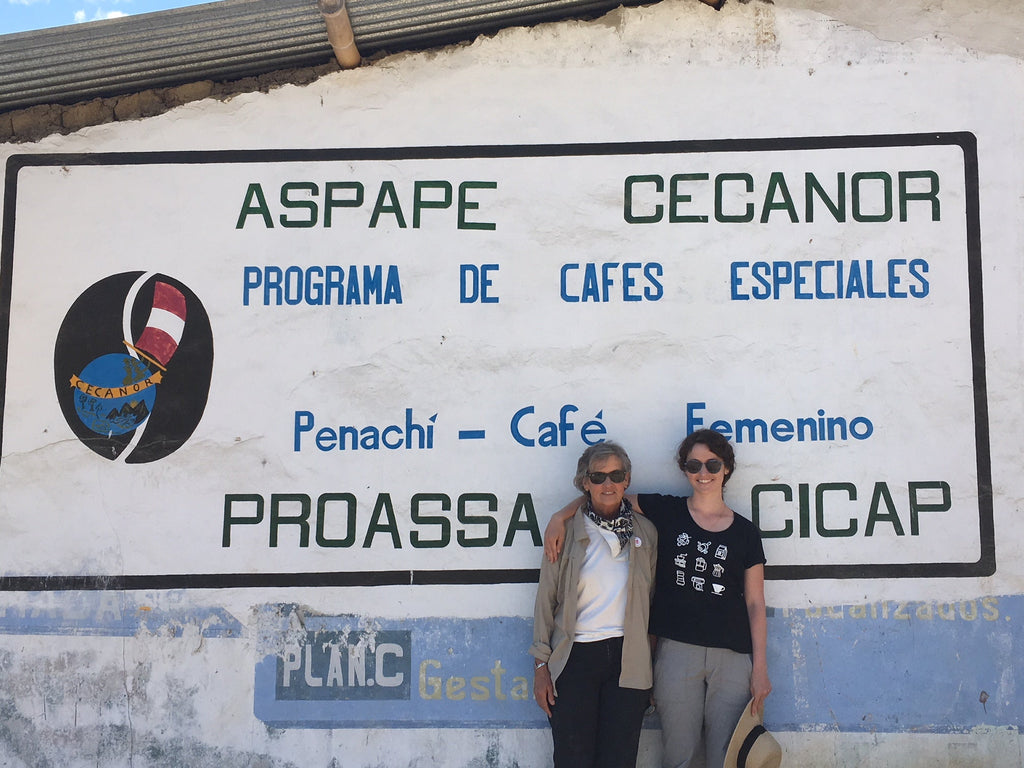
Some Thoughts on Certifications


Yours truly working on a Fair Trade purchases report. Spreadsheets, site plans, inspections, and audits ensure compliance in third-party-audited schemes.
If you’ve ever been to an event at our roastery, you’ll be famliar with our general feelings about coffee certifications (if you need a primer on what those even are, here’s one). We buy coffee in a number of ways, including directly from producers and from long-term importer partners. Half of our offerings are conventional, and yet we consider third-party audited certifications to be the gold standard in transparency and ethics. If there were more consumer demand for these coffees, we would sell more of them. One of the reasons we trust the auditing systems of our Organic and Fair Trade certifications because we know what it takes to do our part in that system.
The last decade in coffee has seen a strong shift away from certifications and towards firm-led approaches like direct trade. The reason we don’t use the phrase “direct trade” to sell those coffees we source and import ourselves is that we don’t see it as an alternative to third-party certifications, but actually a different thing—benefiting a different kind of producer—altogether. We’ve also noticed the co-optation and dilution of the term into something that just doesn’t hold a lot of meaning for us.
We’re a small roaster, and we have limited financial and human resources. Coffee importers have the resources to devote people to just coffee sourcing, but in a given week I’m green buyer, roaster, bookkeeper, marketer, salesperson, delivery driver, and janitor. We think that the money we have allocated for both coffee sourcing and producer development is a lot better spent when we pool it together with other coffee people. And the bigger the system, the more participation, the better.
As Levi Rogers wrote in Daily Coffee News last week, a more global approach to the coffee price crisis is needed, and global price regulation (as it existed between the 60s and the 80s) is a possible solution. Colombia’s FNC is calling for a $2.00/lb FOB minimum price, compared to the Fair Trade/Organic minimum of $1.90. Good! That’s what producers need to cover their costs and make a small living at one of the hardest jobs there is.
In the meantime, I continue to consider Fair Trade and Organic certifications to be the best option, even while treasuring our direct business relationships—which are more beneficial than Fair Trade for some producers. There’s just too much information for consumers to be expected to parse what’s marketing BS and what’s real and what’s relevant, and at least when you look for the little Fair Trade logo, you know exactly what it promises.
I’m going to finish by telling a story. My mom and I were in Lambayeque, Peru a year ago with the wonderful staff of the Cafe Femenino Foundation. On a bumpy mountain toad, our bus stopped. The driver reversed a bit and told us to look out the windows. On either side of the road were these signs:


On the left is a plaque indicating that the road we were traveling on was funded by Fair Trade premiums paid to the coffee co-ops in the area. On the right is a plaque listing the Cafe Femenino projects completed there: guinea pig breeding, vegetable gardens, kitchen improvements, and irrigation canals. These are the real impacts roaster and consumer behavior can have, and it’s frankly far beyond what I thought.
We could never hope to have this kind of positive impact with just our own funds. But when we put our weight behind proven systems for change, we can enjoy knowing that we are doing our best for our producer partners with the resources and knowledge we have.
- RL
